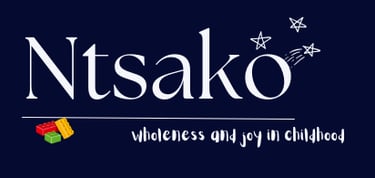
Bonus Piece! Rounding Up
Rounding up and summarising the main points of all the theories and theorists discussed in this Issue
ISSUE 3
VJ Tlakula
7/8/20252 min read


Rounding Up: How all these theorists and their theories come together and relate
Theories of development, especially through learning, are a huge chunk of what we study in developmental science, and I could not possibly go through everything here. However, like everything else in this series, it has begun to lay a crucial groundwork and we will continue to come back to the basic principles of children’s development as we progress. However, for now, given all the theories we’ve gone through, I would like to lay out their essential points here, how they relate to and complement each other, and what they have in common that is valuable when we’re thinking about children developing through learning.
Locke and Rousseau - children are vulnerable and need to be deliberately guided in the correct ways of living.
Pavlov - concerned with the most basic, biological, physiological reflex level (concerned with just responses). Useful in teaching about dangers or making things seem more good and favourable. Experience-based learning.
Skinner - reinforcing (training) behaviour through rewards or punishments to either reinforce or discourage behaviour (concerned with just responses). Useful in discipline and parenting. Emphasises reinforcing good behaviour is better than punishing bad behaviour. Experience-based learning.
Bandura - learning from society. Purely observational learning. I do, you watch and do. Useful for understanding imitation behaviour. Shows how powerful society and observing it is in learning and how it can powerfully shape behaviour. Reinforces that idea that you cannot just behave however you want around children because they will pick it up.
Vygotsky - learning from someone else close to you (often the primary caregiver) how to think and behave, understanding complexities of the world. Links cognition and conditioning. I do and I will help you to do. Relates to Piaget in that scaffolding and all that other stuff is social environmental aspect of cognitive development. As the child learns socially, they assimilate and accommodate information
Piaget - cognitive process (thinking), self-directed and self-motivated. Relevant for understanding how they learn and understand the world and their capacity at the time. Very important to note that part about being concrete thinkers and experiencing and understanding the world quite differently to adults.
What all these theories demonstrate to some extent:
Learning doesn’t happen in isolation or without input and stimulation of some kind. There is always an external, environmental influence on development. The child does not pick this all up at once, rather through a process.
Additionally, children’s thinking and behaviour is concrete-based when they are youngest, and as they understand more about the world, it becomes more abstract and internal. There comes a shift from the purely behavioural, to the complex cognitive.
Children are constantly learning from the world around them and building an understanding and practice of this world, regardless of what is deliberately modelled to them or not. The best and most influential learning often happens through modelling and experience
With this foundation of children's learning, let us progress!
Share your Comments Below!
Please feel free to reach out with any comments, questions, and child-related stories
Celebrating childhood and development
© Ntsako Wholeness and Joy in Childhood 2025. All rights reserved.
Copyright Vutlhari Joy Tlakula 2025. All Rights Reserved.


